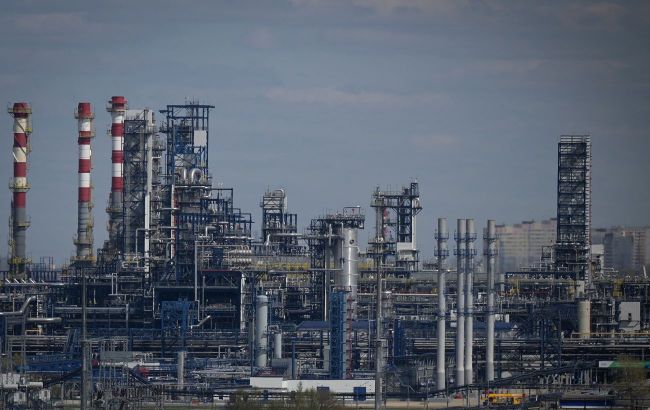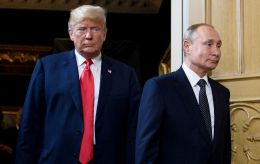Russia faces inflation shock as Ukrainian refinery strikes derail Kremlin plans
 Russia's Central Bank prepares for a difficult decision (photo: Getty Images)
Russia's Central Bank prepares for a difficult decision (photo: Getty Images)
Ukrainian strikes on oil refineries have cast doubt on Russia's plans to lower its key interest rate, Bloomberg reports.
According to the publication, Russia may pause or slow its interest rate-cut cycle this week, as Ukrainian attacks on oil refineries and upcoming tax increases heighten inflation risks.
Although the economy is suffering from high borrowing costs, which the Central Bank began to lower only in June, the team of Governor Elvira Nabiullina is signaling increased caution ahead of Friday's policy meeting.
Last week, in a telling conversation, one of her deputies, Alexey Zabotkin, when lawmakers urged him to provide support for the budget and businesses, promised only a "balanced decision" that would take into account "all available information."
Thus, economists are divided over the outcome of Friday's meeting. About half predict a cut in the key rate from the current level of 17%, while the rest do not expect any changes.
The Central Bank will announce its decision at 13:30 Moscow time, followed by a briefing at 15:00.
"The recent acceleration in price growth and the rise in inflation expectations are limiting the space for rate cuts," said Andrei Melaschenko, chief economist at the Moscow-based company Renaissance Capital.
He believes that the Central Bank will either stay put or act more cautiously, lowering the rate by half a percentage point after a full cut in September.
Inflation rises again
After briefly nearing the Bank of Russia's target level of 4%, inflation has risen once more. The publication notes that this is partly due to the end of seasonal factors, such as the summer decline in fruit and vegetable prices, as well as the fading impact of the ruble's strengthening.
However, a greater cause is the fuel shortage. As the Kremlin shows little interest in negotiations to end the war it started in 2022, Ukraine is intensifying strikes on energy infrastructure, including oil refineries, pipelines, and sea terminals.
Gasoline prices rose by 3% in September and by another 2% this month.
The situation worsens the already unstable inflation outlook. The central bank expects that higher recycling fees on imported cars will limit the availability of such vehicles. It estimates that the plan to raise the value-added tax to 22% from 20% in 2026 — to finance rising defense spending — will add 0.6–0.8 percentage points to consumer price growth.
Such initiatives risk undermining the decline in households' inflation expectations, potentially reducing the scope for policy easing.
Russian economy
On the night of October 23, the US Department of the Treasury announced new sanctions against Russia in an effort to force President Vladimir Putin to sit down for negotiations with Ukraine.
Analysts at The New York Times note that the new US sanctions targeting Russia's oil industry are unlikely to change the war goals of the Russian president.
However, overall, they will add to the problems facing the Russian economy. More details on this can be found in the RBC-Ukraine report.

